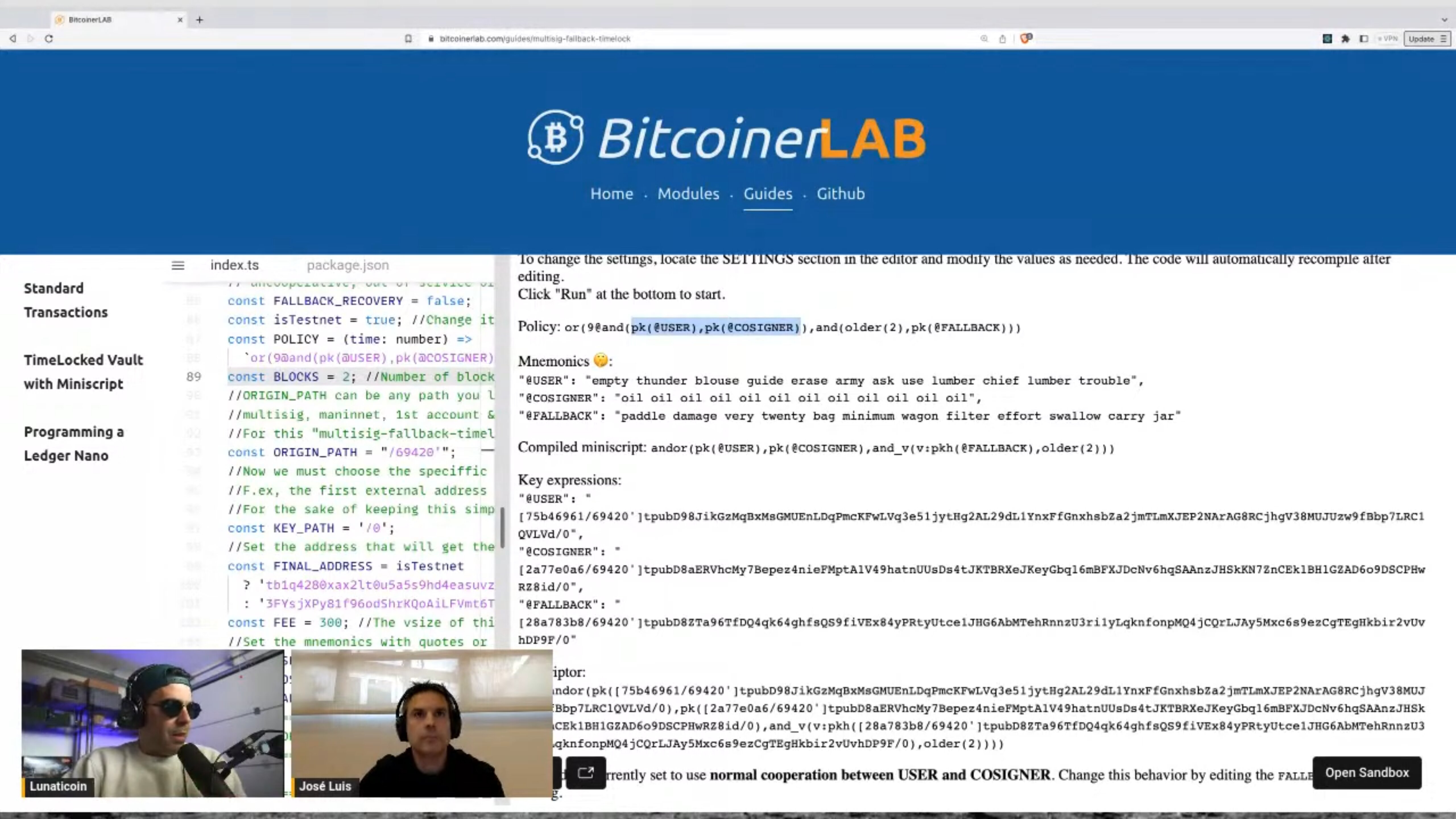Bitcoin is currently my main research and development focus.
These projects explore different aspects of Bitcoin security, programmability
and developer tooling, from vault-based self-custody to open-source
descriptor libraries and test networks.
Rewind Bitcoin Wallet

Rewind is a self-custody wallet designed to resist theft, coercion and
physical attacks.
It introduces a vault-based model using time-locks and pre-signed
transactions to protect funds, even when the owner is under duress.
Available on iOS and Android and soon to be released as open source.
Rewind’s security model combines several components that work together:
Vault Model
Funds are locked with a programmable delay that only starts when an
unfreeze attempt is made.
If an attacker tries to access them, you have time to rescue your coins to a
safe address before the countdown ends.
Delegated Rescue
You can assign trusted 3rd parties (family or friends) who hold pre-signed
cancellation transactions.
They can intervene on your behalf during the countdown to cancel unauthorized
access.
Delegates receive a file containing a transaction map and usage
instructions, which they can execute manually or automatically through
rescue.rewindbitcoin.com.
P2P Community Backups
Rewinds Community Backups store encrypted vault data on a
peer-to-peer network.
Peers only host encrypted data and keys never leave your devices.
The network eliminates Rewind (and me) as a single point of failure and allows
you to run your own peer for maximum availability for you and the rest of
the community, including your loved ones.
Users only need to back up their seed phrase.
When importing the same seed on a new device, Rewind automatically retrieves the
vault data from the network and restores the entire vault setup seamlessly.
Streamlined Testing
In addition to regular testnets, Rewind features its own Tape Network, a
Bitcoin-like environment designed for risk-free experimentation.
When users create a test wallet, they automatically receive test funds from a
built-in faucet, allowing them to explore vault creation and rescue flows
instantly.
BitcoinerLAB (FOSS Libraries)

BitcoinerLAB is my open-source suite of
TypeScript/JavaScript modules for building Bitcoin apps with descriptors
and Miniscript.
It simplifies wallet development by abstracting low-level logic into tested,
composable tools.
More than 2,000 public repositories depend on its combined modules. They’re used by major projects, including the JavaScript APIs provided by Ledger hardware wallets and the Bitcoin Keeper app and serve as the foundation for Rewind’s vaulting architecture.
Selected Modules
- @bitcoinerlab/descriptors — parse/build descriptors, derive keys, finalize PSBTs and coordinate signing (incl. HWW flows).
- @bitcoinerlab/miniscript — Miniscript primitives and policy tools in TypeScript.
- @bitcoinerlab/secp256k1 — React-Native compatible secp256k1 wrapper used with bitcoinjs-lib; depended on by over 2,000 repositories.
- @bitcoinerlab/explorer — unified client for Esplora and Electrum backends.
- @bitcoinerlab/discovery — descriptor-driven UTXO, balance, and transaction discovery.
- @bitcoinerlab/coinselect — descriptor-aware coin selection.
- bitcoinerlab/tester — Docker-based regtest environment with Esplora/Electrum for local integration tests.
GitHub org: github.com/bitcoinerlab
Coding Playgrounds
In addition to the libraries themselves, I built a dedicated site focused on
learning and experimentation.
It combines API references, guided tutorials and interactive playgrounds
that run real code directly in the browser. Developers can modify examples,
connect to test networks, and see results instantly. No setup required.
The playgrounds cover practical cases such as building standard transactions, modeling time-locked vaults with Miniscript or programming HWWs. All runnable in the browser for quick experimentation.
Beyond production use, BitcoinerLAB has also gained traction in education.
It’s frequently used by university students, especially in Spain, to explore
Bitcoin development. The combination of TypeScript’s accessibility, BitcoinerLAB’s modular
structure and hands-on guides makes it a natural starting point for
learning how Bitcoin scripts, descriptors and wallets work in practice.
The combination of TypeScript’s accessibility, BitcoinerLAB’s modular
structure and hands-on guides makes it a natural starting point for
learning how Bitcoin scripts, descriptors and wallets work in practice.
Tape Network
A Bitcoin-like test network I operate for testing wallets and transaction logic. Anyone can join, use the public faucet and access Electrum and Esplora endpoints. Rewind Bitcoin uses it for vault simulation, but it’s also open to the developer community for experimentation.
Learn more: tape.rewindbitcoin.com